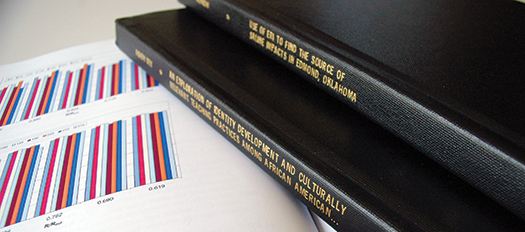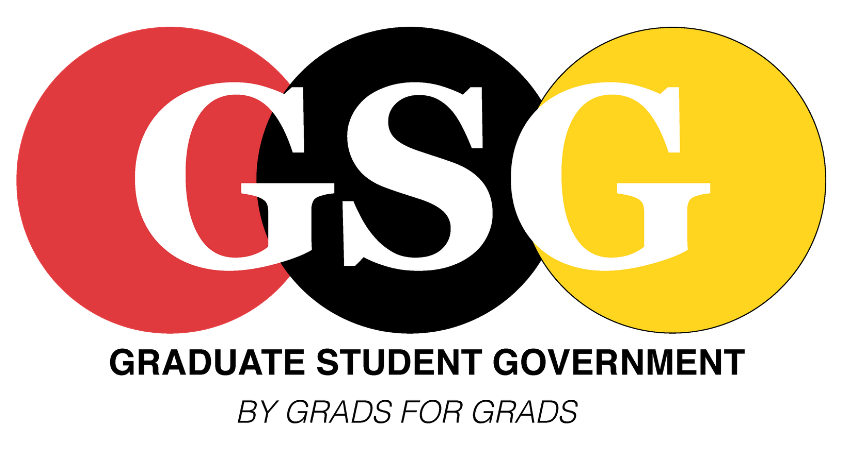Academics
Academic Integrity

Learn about the Code of Academic Integrity, the Code of Student Conduct, or any conduct-related questions through the Anonymous Ask feature. Review major policies regarding plagiarism, sexual misconduct, responsible action, and more at https://studentconduct.umd.edu/
The University Student Judiciary (USJ) is one of Maryland's premier student governance organizations, whose members help the campus community by educating students about and holding students accountable to the policies of the University of Maryland. The policies include the Code of Academic Integrity, the Code of Student Conduct, and Residence Hall Rules of the Department of Resident Life. The members of USJ also are responsible for promoting integrity, character, and ethics within the campus community. There are five branches to the USJ: the Appellate Board, the Central Board, Community Advocates, the Resident Board, and the Student Honor Council. More information about the University Student Judiciary and each of the branches is available at https://www.studentconduct.umd.edu/USJ.
The Student Honor Council is one of the five branches of the University Student Judiciary at the University of Maryland. As an academic institution it is imperative that academic integrity be upheld at all times to maintain the value of the degrees the University of Maryland confers upon its students and ensure its students receive a comprehensive education. Find resources for faculty, staff, and students regarding academic integrity and what steps to take to prevent academic dishonesty as well as what to do should you suspect academic dishonesty at https://academiccatalog.umd.edu/undergraduate/registration-academic-requirements-regulations/academic-integrity-student-conduct-codes/
Read the full V-1.00(B) University of Maryland, College Park Code of Student Conduct, Consolidated USM and UMD Policies and Procedures (Approved by the Board of Regents January 25, 1980; amended effective September 4, 1990; December 18, 2001; April 22, 2004; November 18, 2005; April 5, 2006; March 10, 2011; January 17, 2012; February 20, 2013; May 9, 2013; (Technical amendments approved by the President September 2, 2015) at president.umd.edu/administration/policies/section-v-student-affairs/v-100b
The UMD Principles of Ethical and Responsible Conduct articulate the basic expectations that should guide each of us in our work at the University. These Principles are embedded within many policies and practices identified throughout University handbooks, manuals, and websites and as described in collective bargaining agreements. See them at https://vpaf.umd.edu/ethical-and-responsible-conduct
Course Registration

The Office of the Registrar supports teaching and learning at the University of Maryland by maintaining the integrity of academic policies and the student information system. The operations conducted in the Registrar’s Office are compiled into four large categories: the coordination of course and classroom scheduling, and registration; the maintenance of students’ permanent academic records; the administration and application of academic policies; and, information management, and data analysis and reporting. Find out more about the graduate catalog, course registration, transcripts, and more at registrar.umd.edu
All you need to know about how to register for classes! Find the answers to your registration questions at registrar.umd.edu/reg_guides.html
The schedule of classes is available each semester in print or through the online registration system TESTUDO. Both provide a comprehensive list of course offerings, requirements for academic advising, policies and procedures, and deadlines. You can use TESTUDO to view the schedule of classes, add and drop courses, view your student schedule, and more! Check it out at testudo.umd.edu
View required textbooks for your courses by finding each class in the Schedule of Classes, selecting "Show Sections," and clicking on the icon. Textbooks can also be found on the University of Maryland Bookstore website and at their location in the STAMP.
ELL/ESOL Support

UMD International Student & Scholar Services (ISSS) assists international students with transitioning to the U.S., advising on immigration requirements, and making the most of their academic experience at UMD. ISSS also assists the campus community involved with international educational exchange in the process of bringing international visitors to campus, or in sending Maryland faculty and students abroad. Find out about Visa renewal, I-20s, status, and employment at https://marylandglobal.umd.edu/global-learning-all/international-students-scholars.
The English Editing for International Graduate Students (EEIGS) program is a unique opportunity for enrolled University of Maryland international students. Through this program, international students may submit portions of required academic writing for free editing. The EEIGS program is part of the Graduate School Writing Center, which supports writing skill-building for graduate students.
Find out more about EEIGS at gradschool.umd.edu/graduate-school-writing-center/english-editing-international-graduate-students.
The Learning Assistance Service (LAS) is the academic support unit of the University Counseling Center. LAS provides services that support students in developing personal and academic strategies and behaviors which empower them to be successful in college and life. Often, LAS provides an ESOL Conversation Program.
All LAS services are free to University of Maryland students, so check them out at https://www.counseling.umd.edu/academic/.
The Maryland English Institute provides high-quality programs and courses for non-native speakers of English and strives to provide balanced perspectives of the diversity of American academic, social, and cultural life. The Institute also offers English programs for International Teaching Assistants to become effective oral communicators in the classroom.
Learn more at marylandenglishinstitute.com/wpdir/english-programs.
SLLC-ISSS Language Partner Program (LPP) offers majors in any SLLC (School of Languages, Literatures, and Cultures) program at UMD the opportunity to meet with international students outside the classroom and practice their target language in an informal yet structured way. The LPP provides a win-win situation for both sides. For SLLC majors, participating in the LPP offers a structured opportunity to practice their target language outside of the classroom. Meeting with a native speaker will help SLLC students develop fluency and increase their confidence in speaking while also learning about other cultures and gaining new friends. For international students, the LPP connects them with U.S. students who in turn may help with their cultural integration, serve as good resources to help them navigate an unfamiliar U.S. educational setting, and generally facilitate their stay in the U.S. Upon successful completion of the LPP, SLLC students will earn 1 credit (SLLC 309) and native speakers will receive a small scholarship.
Learn more at globalmaryland.umd.edu/offices/international-students-scholar-services/sllc-isss-ea-language-partner-program
Thesis/Dissertation Support

Details the thesis and dissertation submission process including deadlines, templates, the Electronic Submission Site, and Electronic Thesis & Dissertation (EDT) Style Guide. Access all things thesis and dissertation at gradschool.umd.edu/students/academic-progress/thesis-and-dissertation-filing
A list of required forms from Candidacy Admission to Certificate Completion at gradschool.umd.edu/forms#ThesisDissertationForms
A calendar of important dates for submission of thesis and dissertation forms, graduation application, committee nominations, and more at gradschool.umd.edu/calendar/deadlines/academic-deadlines
Provides full text of UMD theses and dissertations from December 2003 to the present as well as locations of circulating print copies. http://lib.guides.umd.edu/c.php?g=326452&p=2192902
The Counseling Center offers individual counseling for graduate students, group counseling on topics such as Dissertation Support, to help grads build skills relevant to completing a thesis or dissertation. Check out all the Counseling Center has to offer at counseling.umd.edu.
The Graduate School strives to ensure that all Maryland graduate students develop as academic and professional writers. At the campus level, their services include the Graduate School Writing Center, English Editing for International Graduate Students (EEIGS), and a range of workshops available to all graduate students. They also support colleges and departments in their efforts to prepare students for writing within their disciplines through resources for faculty and departments. Find workshops, resources, and more at https://gradschool.umd.edu/graduate-school-writing-center.
The GSWC enacts the Graduate School mission, “Advancing graduate education. Enhancing the graduate student experience,” by providing opportunities for conversations about writing across the graduate community. They offer support for graduate students at every stage of their development as academic and professional writers who can, in turn, fulfill the university’s mission of sharing research, educational, cultural, and technological strengths with the broader community. They accomplish this through a range of services and programs, including Thesis & Dissertation Retreats, Consultations with GSWC fellows, Regular “Write-in” sessions, Workshops on common graduate writing requirements, Resources for writing in the disciplines, and Supporting Writing Groups. Check out all they have to offer at gradschool.umd.edu/graduate-school-writing-center.
Graduate Student Resource Offices

As a premier public research university and land grant institution, the University of Maryland excels in all areas of graduate education, offering its students highly selective research doctoral programs, robust academic and professional master's degrees, and flexible and responsive graduate certificates.
The Graduate School leads, directs, supports, and advocates for this critical university mission, partnering with campus colleges and schools to expand the boundaries of intellectual discovery and ensure student success.
Find out more at gradschool.umd.edu

The Graduate Student Life staff strive to build community among GradTerps, provide effective communications to resources and people, and advocate for GradTerps throughout the University of Maryland. Click through our left navigation to find out more!
Graduate Student Legal Aid (GLAO) provides free legal information, consultations, referrals, and brief assistance to UMD-College Park graduate students on a wide range of both off-campus and university matters. The office is staffed Mondays: 11am-5pm, Tuesdays: 9am-11am & 2pm-5pm, Wednesdays: 9am-3pm, and Thursdays: 9am-3pm. The computers and legal information in the resource room are open for self-guided research. If you are in need of an individual consultation with an attorney, please make an appointment or stop by during Wednesday's walk-in times at 11:00am and 11:30am.
Find out more at https://gradlegalaid.umd.edu/

The Graduate Student Government (GSG) is the only campus organization sponsored, staffed and run exclusively by graduate students. If you are a graduate student, you are automatically a member of the GSG, and your Student Activity Fee goes directly to the funding of this organization. GSG is completely independent of the university administration, and reports only to the graduate student body. GSG advocates for graduate students on and off campus, bringing our concerns to University officials, USM officials, the Board of Regents, and lawmakers. Find out more at gsgumd.org

